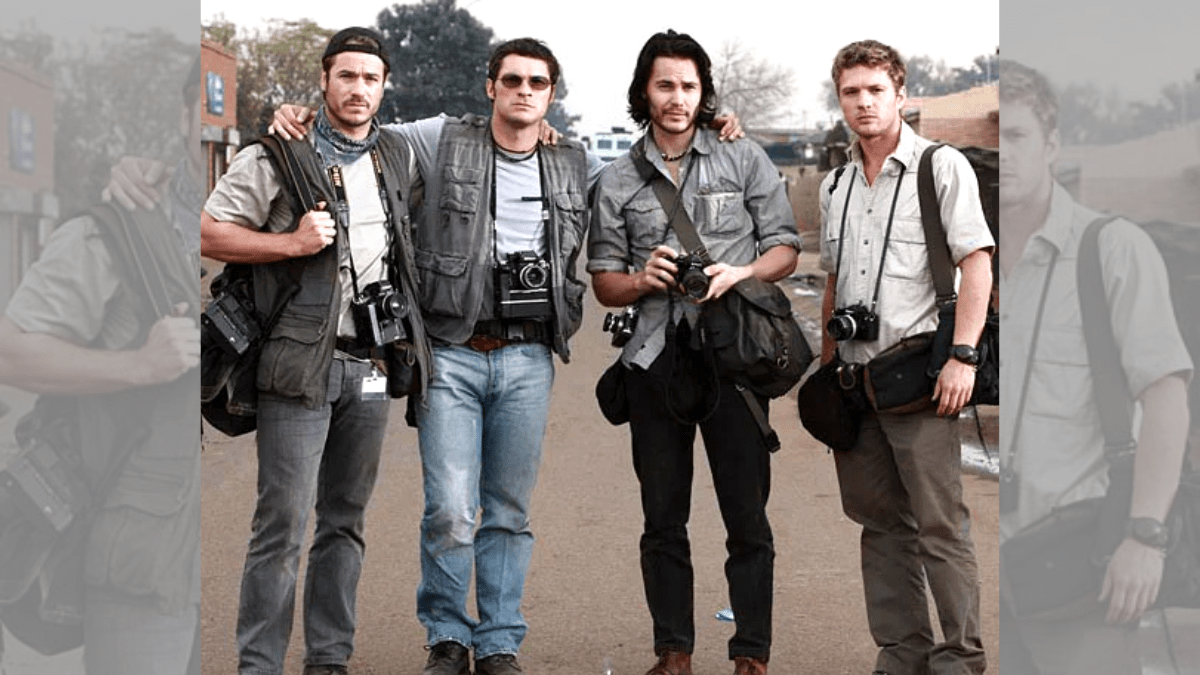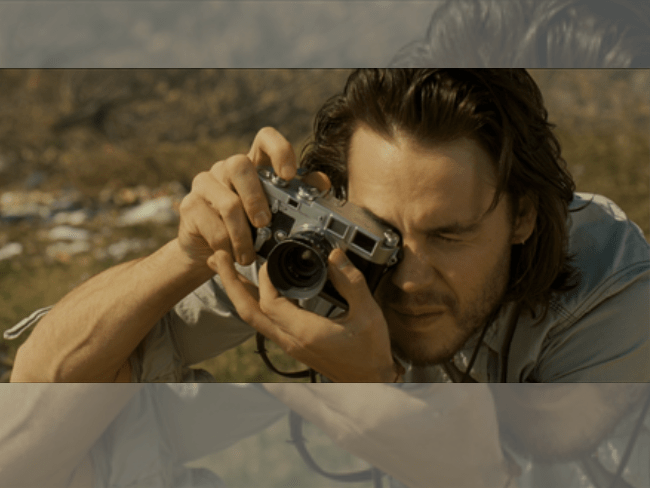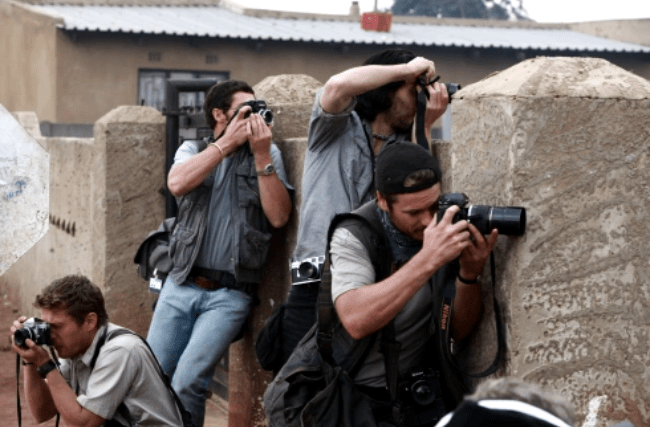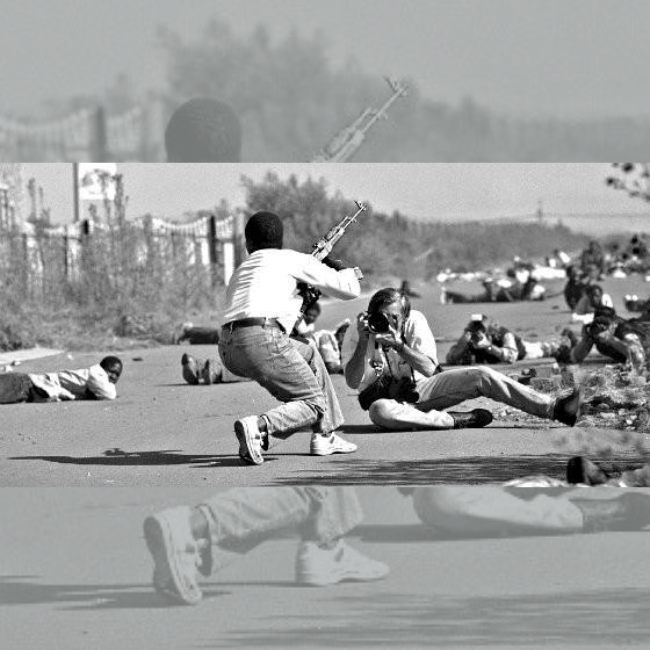The Bang Bang Club review

The 2020 film The Bang Bang Club was mainly an edition of the book with the namesake published in 2010. It features the lives of four combat photographers, namely Greg Marinovich, Ken Oosterbroek, Kevin Carter, and Joao Silva. This ragtag team of photographers wades into the murky waters of the final months of apartheid in South Africa.
The Bang Bang Club’s two faces
A portrait of patriarchy
As the movie focused on the four photographers’ lives in the field, it depicted a realistic point of view. It encompasses the actuality that photographers relentlessly deal with.
It was realistic, really – if only not for the subtle racism, white male privilege, sexism, and lack of political standing, this would’ve been quite bearable to watch.
“Everybody at the end of the day wants to come back with the best shot.” –Kevin Carter

The diegesis begins with introducing the key characters as merely the privileged white combat photographers. The four weathered different situations together to get a proper photo. They were in a tussle for a shot – powerful enough to make the front page and good enough to afford a paycheck.
Understandably, these men are full of adrenaline and hungry for action. Most men of their age group are. They are naturally attracted to anything that pumps blood into their veins and makes them feel alive.
Apolitical culture

For the Bang Bang Club, the apartheid was just a photo opportunity and merely self-serving. Their shots may be technically good, and they’re ultimately doing their job of telling stories through photographs. However, their lack of concern for the lives of their subjects is quite disturbing.
Since the apartheid revolves around the African people, they deem themselves “out of the picture.” They refrain from offering any political stance or trying to go through the root of the issue. And while the perfect antithesis to this is that journalists should be unbiased, real ones do not continue being apolitical for the sake of being unbiased.
Eventually, the poignant truth of the Africans engendered a toll on their well-being. The fiery four dealt with personal and professional struggles throughout the film.
Behind the anterior bold features are the dispositions they fall back onto to handle the pressure of their profession. Slowly, the passion they loved turned them into completely different characters.
The predicament, a brief tribute to the history of the war in South Africa
Their wins and miseries aside, the movie displayed the story of ANCs, Inkatha, and the looming war of conflicts and socio-political issues. However, the film failed to show the gravity of the conflict they’re covering. It fails to contextualize the apartheid, as well its cultural and political effects on Africans and Americans.


At that time, the white minority was still involved in forcibly fighting black demonstrations, but almost all of the fighting filmed by the Bang Bang Club was black against black.
The Bang Bang Club has given people a glimpse of what a combat photographer is. But, it does not leave its viewers with much of an insight into the conflict. Some may even come out of the movie wondering why they didn’t get to see more pictures of apartheid, except implicitly.
Micas pursues writing and photography as a hobby and as an instrument to feature the life of people often ignored in society. She aspires to be a journalist and an all-around cool girl someday. She's in the process of making herself eloquent in writing and speaking.





